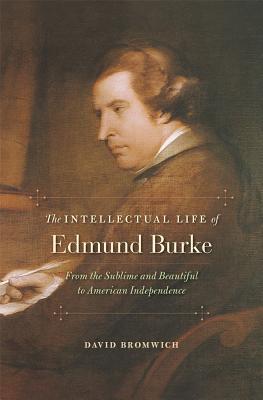On a flank of the White Mountains not far from the Maine state line lies a small New Hampshire town called Albany, population 735. Every seven years, town officials arrange for a surveyor to walk the boundaries of the town, clearing brush, cleaning up markers, and checking to see whether a neighboring, larger town might be creeping into Albany territory. For its part, mandated by the state constitution, that neighboring town is doing just the same thing, lest Albany be perfidious.
This is just the sort of conservative institution of which Edmund Burke, that Irish-born English champion of American independence, would approve.
Now, kindly bear with me. Winston Churchill called himself a conservative, though he championed most aspects of a comprehensive welfare state. Mitt Romney calls himself a conservative, though he argues rigorously against anything that smacks of entitlement, at least entitlement for those who are not already entitled. Sarah Palin is a conservative. So is John McCain, and so is John Major, and so is John Dean. Hillary Clinton is reckoned a conservative Democrat. Against this confusion, does the word conservative have meaning today? Can it fruitfully be applied to the politics of two-dozen decades past and convey the same meaning to different members of the audience?
Back to Edmund Burke. Born of a Catholic mother and Protestant father, and Irish at that, Burke knew discrimination. His preferred remedy was to become better than those who tormented him, an aristocrat of the mind so resoundingly intelligent that a country cleric could say to the great Samuel Johnson that, having just passed a few moments chatting with Burke, he had finally met a genius. No trigger warnings, special pleading, or mandated programs for Burke: He mistrusted the state, but he also mistrusted the individual. He insisted that the individual was beyond being perfected, but that the well-shaped institution could curb some of our nastier impulses. If neither was perfectible, neither was hopelessly corrupt.
And Burke insisted on a morally based, but situational, politics. That moral basis, relying on tradition and custom, honoring the past and not seeking to overthrow it, gives conservatives claim to Burke as an ancestor, even conservatives as various as the British parliamentarian Jesse Norman, author of Edmund Burke: The First Conservative, and the American think-tank denizen Yuval Levin, whose excellent but partial The Great Debate contrasts Burke’s politics with Thomas Paine’s.
Both books are worthy, though an American conservative might look sideways at Norman for being a British conservative, with all the Churchillian sort-of-socialism that the designation entails. Indeed, Norman skims over a point that Levin addresses in brief, but that turns out to be essential to the Burkean program: Responsibilities and obligations accompany rights. As Levin justly notes, “Meeting obligations is as essential to our happiness and our nature as making choices.”
That insistence on obligations, and on a politics that considers society as it is and not as it might be, underlies the intellectual construct that we might call Burkean thought. Is it conservative? Perhaps—but perhaps not strictly so, not as Burke himself qualified it. David Bromwich’s thrillingly good intellectual biography of the statesman delves deeply into the moral aspects of Burke’s program: “Ambition and greed, the will to dominate and the indifference it sows against feeling and nature, these things were to him the curse of life, beside which its other evils fade into secondary effects.”
That will to power is the province of the king, Burke might say, but when the king becomes too grasping, as he inevitably will, then power must be shared out to a parliament as representatives of—not mouthpieces for—the people. When Parliament becomes too self-serving, too inclined to tread on the rights of the people, on one hand, and the king, on the other, as it inevitably will, then it must be reined in. Tempered by institutions of education and faith that remind all involved that they are not strictly takers but must give—that they have obligations as well as rights—we evolve a politics worthy of the name. By that politics, Burke would insist, we act not because it is expedient, but because it is right. “The principles of true politics,” he urged, “are those of morality enlarged.”
Bromwich, to his credit, shies away from anachronism, refusing to enroll Burke in current political controversies. Reading his book, though, we can be sure that Burke would not have relished taking tea with Ayn Rand, that a Burkean “common core” would not defer to teachers’ unions, and that, as Bromwich writes, “the means must justify themselves.” If the means are immoral and do not contribute to the good, then they are wrong—and they are bad politics.
So is Edmund Burke a conservative? Yes—but no, not exclusively. Brought into any modern politics, his views would require more than a little adjustment to fit into a cynical, amoral system; the system, the means, would have to change, which seems unlikely short of revolution along the lines that Burke endorsed. More fruitful, by my reckoning, is to form the habit of thinking of manifestations of modern politics in the light of whether they would meet with the great thinker’s approval. A polity that maintains its boundary markers and spruces up its boundaries is Burkean, whereas one that allows its bridges to collapse and its schools to crumble in the interest of enriching a few private parties is not. In making such assessments, David Bromwich’s study of Edmund Burke is an indispensable guide.
[The Intellectual Life of Edmund Burke: From the Sublime and Beautiful to American Independence, by David Bromwich (Cambridge, MA: Belknap/Harvard University Press) 512 pp., $39.95]

Leave a Reply